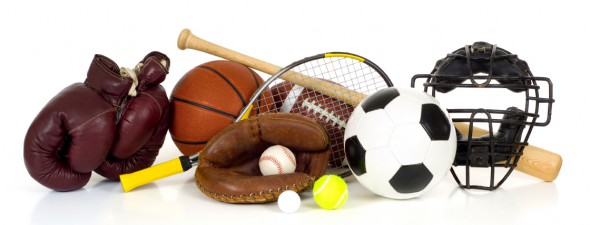 Is there a relationship between personality type and sport preference? How do those know what their sports personality might be? What do those who participate in the same sports have in common?
Is there a relationship between personality type and sport preference? How do those know what their sports personality might be? What do those who participate in the same sports have in common?
In order to answer questions related to sports psychology, over five hundred athletes were tested and evaluated. To examine the relationship between personality types, sport preferences and performance, team and individual athletes’ personality profiles were designed.
Results indicated that teams exhibit a predictable personality profile and that by understanding the psyche of the athlete, performance and team productivity can be enhanced. Optimal communication and performance can be achieved by identifying the athletes’ preferred learning and personality styles. The more athletes and coaches understand about their personalities and the team profile, the more productive they can be.
Benefits of Understanding Sports Psychology
- Helps assess the fit between persons and sports and even positions on a team
- Helps athletes and coaches value their strengths and become more aware of those areas in which development may be warranted
- Helps coaches and athletes in a strained relationship analyze the source of the conflict and build a strategy to reduce it
- Can lead to motivated and committed behavior
- Useful for the athlete and sports professional in career and life planning, self-management (such as stress/time management) and interpersonal skills areas
- Many applications in team building and management training
Background
The Myers-Briggs Type Indicator is organized by using eight different personality preferences. The preferences are arranged by four functions and four attitudes. The four functions are composed of two kinds of perception, sensing (S) and intuition (N), and two kinds of judgment, thinking (T) and feeling (F). The four attitudes are composed of extraversion (E), introversion (I), judgment (J), and perception (P).
The roles of the functions are as follows:
- Sensing (S) seeks the fullest possible experience of what is immediate and real.
- Intuition (I) seeks the furthest reaches of the possible and imaginative.
- Thinking (T) seeks rational order and plan according to impersonal logic.
- Feeling (F) seeks rational order according to harmony among subjective values (Myers, McCaulley, 1985).
The roles of the attitudes are as follows:
- Extroversion (E) draws energy from objects and people in society and the environment.
- Introversion (I) draws energy from an inner world of concepts and ideas.
- Judgment (J) seeks to make decisions, closure, plan operations, or organize activities.
- Perception (P) outer behavior is spontaneous, curious, and adaptive, open to new events and changes (Myers, McCaulley, 1985).
The MBTI can be applied to many different settings, such as, education, counseling, career guidance, athletics and teamwork, and communications.
- In education settings, the MBTI can help to analyze curricula, methods, media, and materials in light of the needs of different types.
- In counseling, it can help couples and families learn the value of both their differences and similarities.
- Using the MBTI in career guidance can help guide individuals in their choice of school majors, professions, occupations, and work settings.
- For athletics and teamwork, it can help select teams, and help team members grow in their own development as each learns from the skills of the other.
- In a communications setting, the MBTI can help to increase understanding by “talking the language” of different types in the group.
The investigation of athletes personality type and its relationship with individual and team performance is innovative; results of the work conducted with NBA players, Olympic athletes and high school athletes have been very positive. Coaches and parents can now better understand the behavior of athletes and teams. Athletes can better understand their preferences and utilize that information to maximize their performance in sport and in their second careers.
About the Author:
Cristina B. Versari, Ph.D. is a sport psychology and career consultant specializing in performance enhancement, career and life planning, and team building. She is the president of the National Sports Counseling Network and a seminar speaker. Dr Versari has been studying the personality profile of elite athletes and designing training programs for peak performance for over ten years.
For information on training programs or consulting, she can be reached at: phone and fax (619) 658 0204, or P.O. BOX 22961, San Diego, California, 92122.


























Do you mind if I quote a few of your articles as long as I
provide credit and sources back to your site? My blog site is in the very same
area of interest as yours and my users would really benefit from a lot
of the information you present here. Please let me know if this alright with you.
Appreciate it!
Go right ahead just please do me a favor and plug SportPsychologyToday.com when you do. Also if you are interested in writing an article to be published on SportPsychologyToday.com and bring traffic to your blog site you can submit your article to mike@mentaledgeathletics.com. We ask only that the article is free of duplicate content on the internet. Meaning, an article that you have not posted on your blog or anywhere else on the internet. We do this for SEO purposes. Search engines tend to penalize sites with duplicate content. Best of luck with your blog! Sport Psychology Today currently receives over 800 visits a day so your may find submitting an article would help bring you traffic!